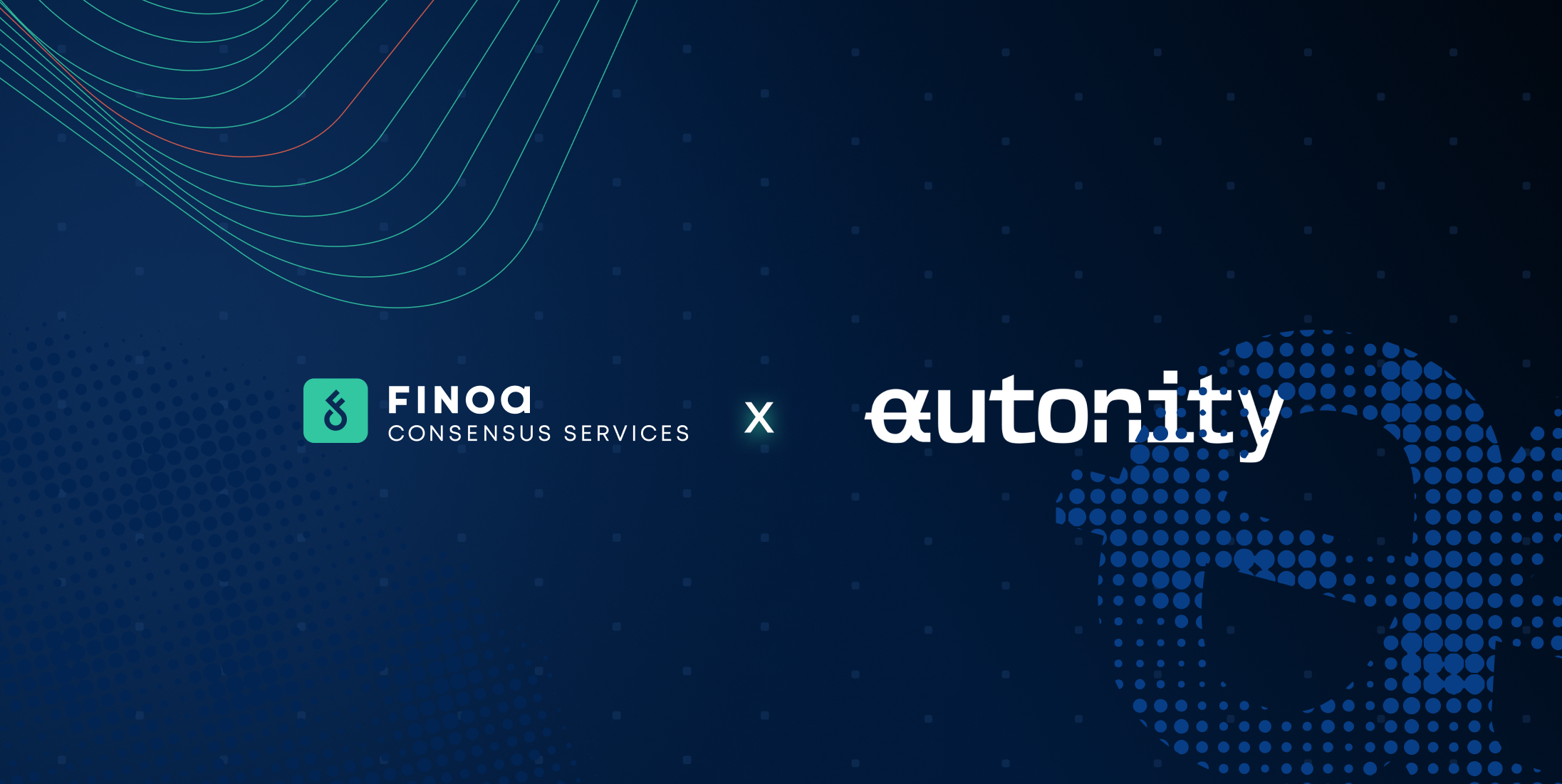Decentralized infrastructure is advancing rapidly but derivatives markets have remained an untapped frontier. Their reliance on precise execution, real-time data, and strict governance demands a purpose-built chain. Autonity meets this need with a unified validator model that blends consensus, oracles, and governance into a single operational layer.
For institutional participants, this is more than another Layer 1. It is a programmable and transparent clearing layer for on-chain derivatives. At its genesis, Finoa Consensus Services (FCS) will be among the first validators helping launch and secure the network.
Validators as the foundation of Autonity
Autonity is engineered to power decentralized derivatives markets. Validators secure the network, participate in governance, and act as decentralized oracles that feed market data to smart contracts. These roles are unified and enforced by protocol logic, making validators directly accountable for uptime, market integrity, and network evolution.
Participation is permissionless. Any operator can run the Autonity client, stake Newton (NTN) tokens through the protocol contract, and register on chain. Selection into the active consensus set is determined by bonded stake.
Unified validator responsibilities
Unlike many blockchain ecosystems where block production, governance, and data provision are separate, Autonity combines them. Every validator must:
- Propose and vote on blocks using Byzantine Fault Tolerant consensus
- Relay transactions and consensus messages across an Ethereum-compatible P2P layer
- Operate an oracle server that submits live market price data on chain
- Vote on governance proposals and protocol parameters
Duties and rewards are aligned to enforce accountability. Underperformance, such as missed votes or inaccurate data, is penalized directly by the protocol.
How block production works
Autonity uses Tendermint BFT for deterministic finality. The highest staked validators form the consensus committee each epoch. Proposer selection follows a weighted round-robin method based on bonded stake, and a block is finalized once two-thirds of voting power approves it.
An on-chain accountability framework detects and penalizes misbehavior. Slashing starts with the validator’s own bonded stake, protecting delegator trust and encouraging strong key management.
Oracles as part of the validator role
Each validator operates an oracle server to submit price data at set intervals. Submissions are aggregated, checked for variance, and penalized if thresholds are breached. This ensures market data comes from a decentralized, incentivized source without reliance on third-party providers.
Why Finoa Consensus Services is involved from day one
FCS is validating on Autonity’s Bakerloo testnet and will be part of the genesis validator set. Early involvement allows us to:
- Track proposer selection frequency
- Measure block production and attestation latency
- Operate and refine oracle servers for consistent accuracy
- Test failover logic to prevent double-signing
- Adapt quickly to governance proposals and upgrades
Validator rewards and alignment
Once mainnet is live, rewards will come from:
- Transaction activity: base and priority fees
- Inflation: 40 percent of NTN’s total supply allocated to validator rewards in early years
- Delegation through the Stake Delegation Program to diversify and reward top performers
This structure incentivizes reliable, accurate, and governance-active validators. For FCS, rewards follow from building high-performance infrastructure.
Institutional-grade infrastructure
Our Autonity validator setup includes:
- Bare-metal servers in secure data centers
- Geographic redundancy with safe failover
- Hardware security modules for key storage
- Continuous monitoring of proposer, oracle, and voting activity
- Tested incident response protocols
Why Autonity is unique
Autonity combines Ethereum compatibility, Tendermint-style finality, integrated oracle services, fully on-chain governance, liquid staking, and penalty-absorbing slashing. This combination creates a trusted and efficient base layer for decentralized derivatives.
Supporting Autonity’s launch
By participating at genesis, FCS is helping prepare Autonity for institutional scale. Its validator model merges consensus, data, and governance into one system that improves accountability, reduces complexity, and sets a new performance standard.
This post is for educational purposes only. Always conduct your own research before participating in any protocol.

